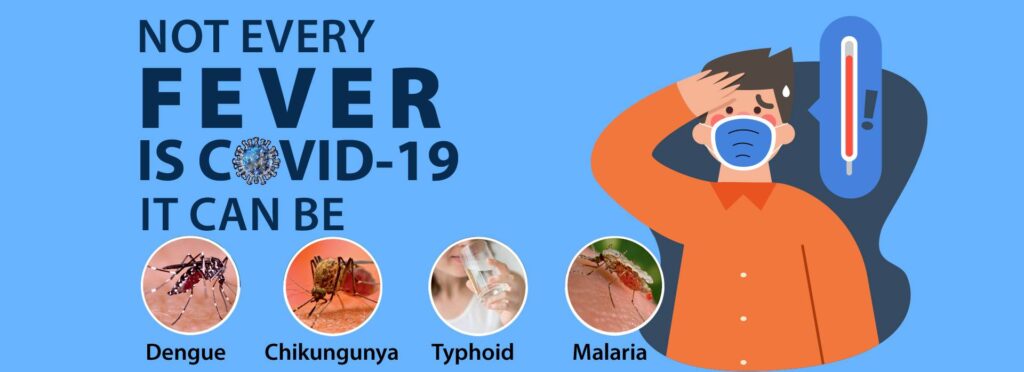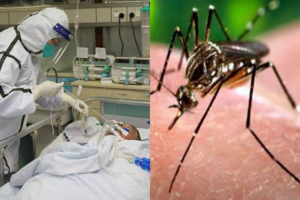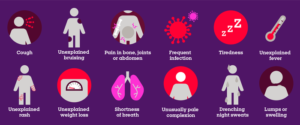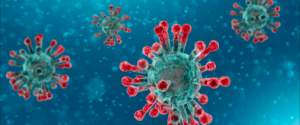Differentiating Between Covid-19, Dengue, And Malaria Symptoms

The changing of the monsoon has raised fear of infectious diseases such as malaria and dengue fever, which are prominent symptoms of the COVID-19 pandemic.
During the monsoon season, cases of malaria and dengue fever, both vector-borne diseases caused by mosquito bites, increased. Because of the overlapping symptoms, doctors are becoming increasingly concerned about the spread of these disorders. Here’s how to tell the difference between the three illnesses.
Covid-19, Dengue, And Malaria Are Caused By:
COVID-19 is a pulmonary ailment transmitted by SARS-COV-2 virus-infected droplets. It has the potential to spread by airborne or direct droplet transfer.
Dengue fever and malaria are diseases that primarily strike at the change of seasons. The virus that causes the disease is known as the dengue virus (DENV), and it is transmitted via Aedes mosquito bites.
Malaria is caused by the parasite Plasmodium, which is transferred through the bite of the female Anopheles mosquito.
Covid-19, Dengue, And Malaria Symptoms Overlayed:
These three infections are caused by viruses and have respiratory problems that induce inflammation.
COVID-19 symptoms include a high fever, shivers, congestion, cold, sore throat, breathlessness, headache, chronic fatigue, extreme weariness, and weakness, all of these can be seen in varied forms with dengue and malaria.
Dengue fever is characterized by a rising fever, intense headache, joint and muscular pains, as well as gastrointestinal issues such as vomiting, abdomen pain, and diarrhea. Dengue virus has four subtypes, which means an individual can be infected with the infection up to four times. Patients may have breathing difficulty, bleeding through the nose and mouth, and a sudden fall in blood pressure, which can result in shock, as the infection develops.
Malaria side effects comprise fever, headaches, and shivers. It can proceed to severe sickness and fatality if not addressed within 24 hours. Acute anemia, difficulty breathing due to metabolic acidosis, and brain malaria can all occur in children with chronic malaria.
How Can Covid-19 Be Different From Dengue, Malaria?
To really be able to distinguish among the three disorders, keep the following in mind:
- Only COVID-19 can cause a loss of taste and smell.
- With dengue and malaria, several main COVID-19 symptoms, like upper respiratory tract and indicators of inflammation such as congestion, variation in tone, and sore throats, may not present.
- With COVID-19 individuals, gastrointestinal discomfort such as vomiting and diarrhea may not usually occur.
- Breathlessness, cardiac pain, or breathing difficulties are not common symptoms of dengue or malaria.
- Headaches and fatigue are common symptoms of dengue and malaria, but this isn’t necessarily the case if you’ve been exposed to COVID-19.
- COVID-19 side effects can appear as early as 2-3 days after contracting the virus, but malaria and dengue get a prolonged incubation period, with symptoms appearing as late as 22-25 days.
- Dengue and malaria are not particularly communicable among humans, whereas COVID-19 is highly contagious.


